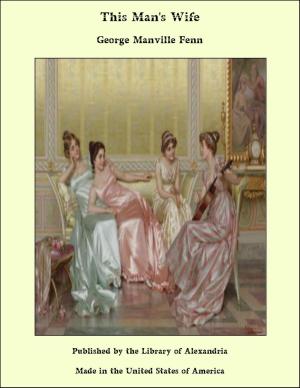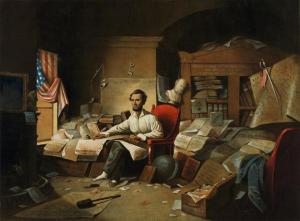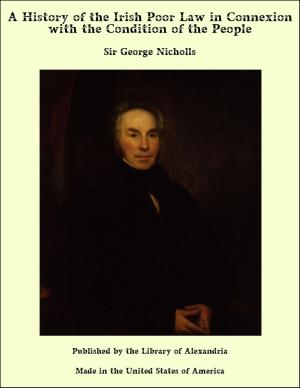| Author: | Bjørnstjerne Bjørnson | ISBN: | 9781465607065 |
| Publisher: | Library of Alexandria | Publication: | March 8, 2015 |
| Imprint: | Language: | English |
| Author: | Bjørnstjerne Bjørnson |
| ISBN: | 9781465607065 |
| Publisher: | Library of Alexandria |
| Publication: | March 8, 2015 |
| Imprint: | |
| Language: | English |
Many years since to this quiet little town came the well esteemed man, Peer Olsen; he came from the country, where he had lived as a small stall keeper and by playing the violin. In this town he opened a little shop for his old customers, where besides other wares he sold brandy and bread. One could hear him going backwards and forwards in the room behind the shop, playing spring dances and wedding marches; every time he passed the door he peeped through the glass pane, when, if he saw a customer, he finished up with a trill, and went in. Trade went well, he married and got a son, whom he named after himself, yet not Peer but Peter. Little Peter should be what Peer felt HE was not, an educated man, so the lad was sent to the Latin school. Now when those who should have been his companions, thrust him out of their play because he was the son of Peer Olsen, Peer Olsen turned him out to them again, as that was the only way for the boy to learn manners. Little Peter, therefore, feeling himself forsaken at the school, grew idle, and gradually became so indifferent to everything, that his father could neither thrash smiles nor tears out of him, so the father gave up struggling with him and put him in the shop. How astonished then--was he not? when he saw the lad give to each customer what he asked for, without a grain too much, never even touching so much as a raisin himself preferring not to talk, but weighing, counting, entering, without any change of countenance, very slowly, but with scrupulous exactness. His father's hopes began to revive, and he sent him with a fishing smack to Hamburg, to enter a Merchant's College, and to learn fine manners; he was away eight months, that must surely be sufficient. When he came back he had provided himself with six new suits of clothes, and on landing he put one suit on the top of another, for "things in actual wear are exempt from duty." But thickness excepted, he made about the same figure in the street next day. He walked straight or stiff with his arms perpendicular, shook hands with a sudden jerk, and bowed as if without joints to be at once stiff again; he had become politeness itself, but everything was done without uttering a word, and quickly, with a certain shyness. He did not sign his name Olsen any more, but Ohlsen, which led the wits of the town to ask, "How far did Peter Ohlsen get in Hamburg?" Answer: "As far as the first letter." He even went so far as to think of calling himself Pedro, but he had to brook so much annoyance for the h's sake, that he gave it up and signed himself P. Ohlsen. He extended the business, and though only twenty-two, he married a red-handed shop girl, for his father had just become a widower, and it was safer to have a wife than a housekeeper. That day year he got a son, who that day week was named Pedro. When worthy Peer Olsen became a grandfather, he felt an inward calling to grow old. Therefore he left the business to his son, sat outside upon a bench, and smoked twist tobacco from a short pipe; and when one day he began to grow tired of sitting there, he wished he might soon die, and even as all his wishes had quietly been fulfilled, so also was this.
Many years since to this quiet little town came the well esteemed man, Peer Olsen; he came from the country, where he had lived as a small stall keeper and by playing the violin. In this town he opened a little shop for his old customers, where besides other wares he sold brandy and bread. One could hear him going backwards and forwards in the room behind the shop, playing spring dances and wedding marches; every time he passed the door he peeped through the glass pane, when, if he saw a customer, he finished up with a trill, and went in. Trade went well, he married and got a son, whom he named after himself, yet not Peer but Peter. Little Peter should be what Peer felt HE was not, an educated man, so the lad was sent to the Latin school. Now when those who should have been his companions, thrust him out of their play because he was the son of Peer Olsen, Peer Olsen turned him out to them again, as that was the only way for the boy to learn manners. Little Peter, therefore, feeling himself forsaken at the school, grew idle, and gradually became so indifferent to everything, that his father could neither thrash smiles nor tears out of him, so the father gave up struggling with him and put him in the shop. How astonished then--was he not? when he saw the lad give to each customer what he asked for, without a grain too much, never even touching so much as a raisin himself preferring not to talk, but weighing, counting, entering, without any change of countenance, very slowly, but with scrupulous exactness. His father's hopes began to revive, and he sent him with a fishing smack to Hamburg, to enter a Merchant's College, and to learn fine manners; he was away eight months, that must surely be sufficient. When he came back he had provided himself with six new suits of clothes, and on landing he put one suit on the top of another, for "things in actual wear are exempt from duty." But thickness excepted, he made about the same figure in the street next day. He walked straight or stiff with his arms perpendicular, shook hands with a sudden jerk, and bowed as if without joints to be at once stiff again; he had become politeness itself, but everything was done without uttering a word, and quickly, with a certain shyness. He did not sign his name Olsen any more, but Ohlsen, which led the wits of the town to ask, "How far did Peter Ohlsen get in Hamburg?" Answer: "As far as the first letter." He even went so far as to think of calling himself Pedro, but he had to brook so much annoyance for the h's sake, that he gave it up and signed himself P. Ohlsen. He extended the business, and though only twenty-two, he married a red-handed shop girl, for his father had just become a widower, and it was safer to have a wife than a housekeeper. That day year he got a son, who that day week was named Pedro. When worthy Peer Olsen became a grandfather, he felt an inward calling to grow old. Therefore he left the business to his son, sat outside upon a bench, and smoked twist tobacco from a short pipe; and when one day he began to grow tired of sitting there, he wished he might soon die, and even as all his wishes had quietly been fulfilled, so also was this.















